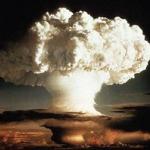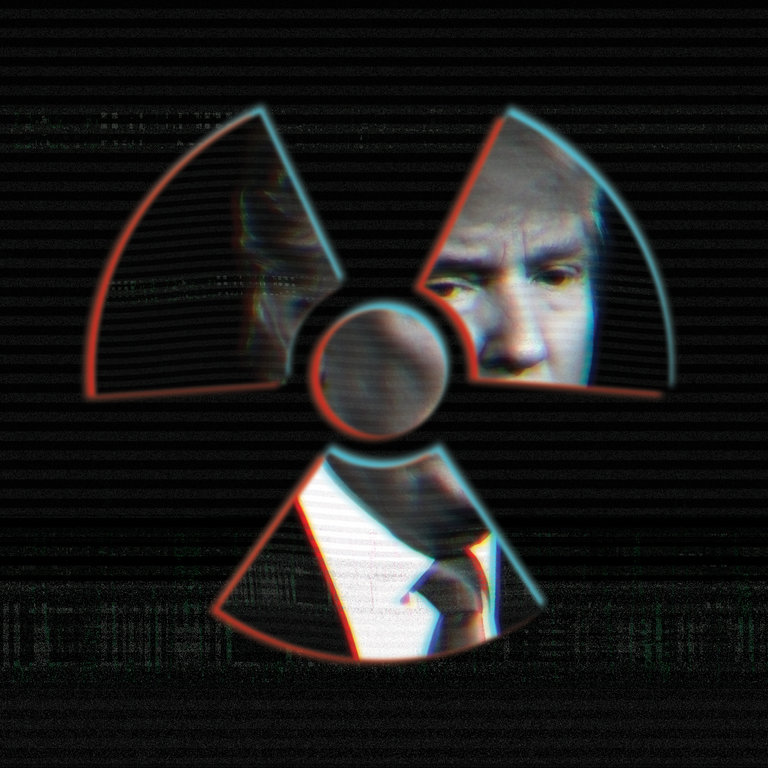Mikhail Gorbachev: 'It All Looks as if the World Is Preparing for War'
https://portside.org/2017-02-16/mikhail-gorbachev-it-all-looks-if-world-preparing-war

Portside Date:
Author: Mikhail Gorbachev
Date of source:
TIME

The current situation is too dangerous.
More troops, tanks and armored personnel carriers are being brought to Europe. NATO and Russian forces and weapons that used to be deployed at a distance are now placed closer to each other, as if to shoot point-blank.
While state budgets are struggling to fund people's essential social needs, military spending is growing. Money is easily found for sophisticated weapons whose destructive power is comparable to that of the weapons of mass destruction; for submarines whose single salvo is capable of devastating half a continent; for missile defense systems that undermine strategic stability.
Politicians and military leaders sound increasingly belligerent and defense doctrines more dangerous. Commentators and TV personalities are joining the bellicose chorus. It all looks as if the world is preparing for war.
It could have been different
In the second half of the 1980s, together with the U.S., we launched a process of reducing nuclear weapons and lowering the nuclear threat. By now, as Russia and the U.S. reported to the Non-proliferation Treaty Review Conference, 80% of the nuclear weapons accumulated during the years of the Cold War have been decommissioned and destroyed. No one's security has been diminished, and the danger of nuclear war starting as a result of technical failure or accident has been reduced.
This was made possible, above all, by the awareness of the leaders of major nuclear powers that nuclear war is unacceptable.
In November 1985, at the first summit in Geneva, the leaders of the Soviet Union and the U.S. declared: Nuclear war cannot be won and must never be fought. Our two nations will not seek military superiority. This statement was met with a sigh of relief worldwide.
I recall a Politburo meeting in 1986 at which the defense doctrine was discussed. The proposed draft contained the following language: "Respond to attack with all available means." Members of the politburo objected to this formula. All agreed that nuclear weapons must serve only one purpose: preventing war. And the ultimate goal should be a world without nuclear weapons.
Breaking out of the vicious circle
Today, however, the nuclear threat once again seems real. Relations between the great powers have been going from bad to worse for several years now. The advocates for arms build-up and the military-industrial complex are rubbing their hands.
We must break out of this situation. We need to resume political dialogue aiming at joint decisions and joint action.
There is a view that the dialogue should focus on fighting terrorism. This is indeed an important, urgent task. But, as a core of a normal relationship and eventually partnership, it is not enough.
The focus should once again be on preventing war, phasing out the arms race, and reducing weapons arsenals. The goal should be to agree, not just on nuclear weapons levels and ceilings, but also on missile defense and strategic stability.
In modern world, wars must be outlawed, because none of the global problems we are facing can be resolved by war - not poverty, nor the environment, migration, population growth, or shortages of resources.
Take the first step
I urge the members of the U.N. Security Council - the body that bears primary responsibility for international peace and security - to take the first step. Specifically, I propose that a Security Council meeting at the level of heads of state adopt a resolution stating that nuclear war is unacceptable and must never be fought.
I think the initiative to adopt such a resolution should come from Donald Trump and Vladimir Putin - the Presidents of two nations that hold over 90% of the world's nuclear arsenals and therefore bear a special responsibility.
President Franklin D. Roosevelt once said that one of the main freedoms is freedom from fear. Today, the burden of fear and the stress of bearing it is felt by millions of people, and the main reason for it is militarism, armed conflicts, the arms race, and the nuclear Sword of Damocles. Ridding the world of this fear means making people freer. This should become a common goal. Many other problems would then be easier to resolve.
The time to decide and act is now.
[Mikhail Gorbachev was the president of the Soviet Union and is the author of The New Russia.]
The Finger on the Nuclear Button
Editorial Board
February 5, 2017

Illustration by Joan Wong; Photo by Doug Mills/The New York Times
Scientists who study the risk of nuclear war recently moved the hands of the symbolic Doomsday Clock to 2-1/2 minutes before midnight - meaning they believe that the world is closer to nuclear catastrophe than it has been since 1953 after the United States and Soviet Union tested hydrogen bombs. The Bulletin of the Atomic Scientists, which created the clock in 1947, says that President Trump is the main reason for this worrisome development.
Mr. Trump came to office with little knowledge of the vast nuclear arsenal and the missiles, bombers and submarines it contains. He has spoken, alarmingly, about deploying this weaponry against terrorists and about expanding America's nuclear capabilities. He has said he values unpredictability, meaning presumably that he wants to keep other nations on edge about whether he will use nuclear weapons.
"Let it be an arms race," he told a television interviewer in December. During a debate three months earlier he contradicted himself, saying that "I would certainly not do first strike," then adding, "I can't take anything off the table." What's worrisome about all this is that it is the opposite of what Republican and Democratic presidents have long sought, which is to ensure that these weapons are not used precipitously if at all.
It is the fear of such precipitous action that has led Senator Edward Markey of Massachusetts and Representative Ted Lieu of California, both Democrats, to propose legislation to prohibit any president from launching a first-strike nuclear weapon without a declaration of war from Congress.
The bill would not undercut Mr. Trump's ability to respond on his own authority to a nuclear attack, an authority all presidents have had and should have. It has support from leading arms control advocates, including former Defense Secretary William Perry. And while it won't go anywhere in this Republican-led Congress, it sends a clear message to Mr. Trump that he should not be the first since World War II to use nuclear weapons. Mr. Trump could more usefully deploy his energies engaging with Russia to further reduce both countries' nuclear arsenals, maintaining the Iran nuclear deal and finding new ways to curb North Korea's nuclear program.
A Pentagon advisory board recently proposed that the United States consider building more lower-yield nuclear weapons to provide an option for "limited use" in a regional conflict. The only legitimate role for nuclear weapons is deterrence. The absurd notion of a "limited" nuclear war, which could make it easier for a president to use lower-yield weapons, needs to be rejected. The country has enough advanced conventional weapons to defend against most threats.
Mr. Trump commands about 4,000 weapons that he alone is empowered to launch. Any decision responding to an attack would have to be made quickly. That kind of life-or-death choice would test any leader, even those well-schooled in arcane nuclear doctrine, the intricacies of power politics and the importance of not letting tensions get to the point where a nuclear exchange becomes likely. But none of Mr. Trump's closest advisers are known to be nuclear experts, the president has yet to put together a nuclear strategy and, as the Bulletin's Science and Security Board warned last month, Mr. Trump "has shown a troubling propensity to discount or outright reject expert advice."
With Mr. Trump, sound decision-making may be an even greater challenge, given his disruptive, impulsive style. There is also the fact that he has assumed office at a particularly unstable time, with the Middle East in turmoil and Russia and China acting more aggressively. This is a time for restraint and careful deliberation, and for leaders who clearly understand that nuclear weapons are too dangerous to be brandished as a cudgel.
